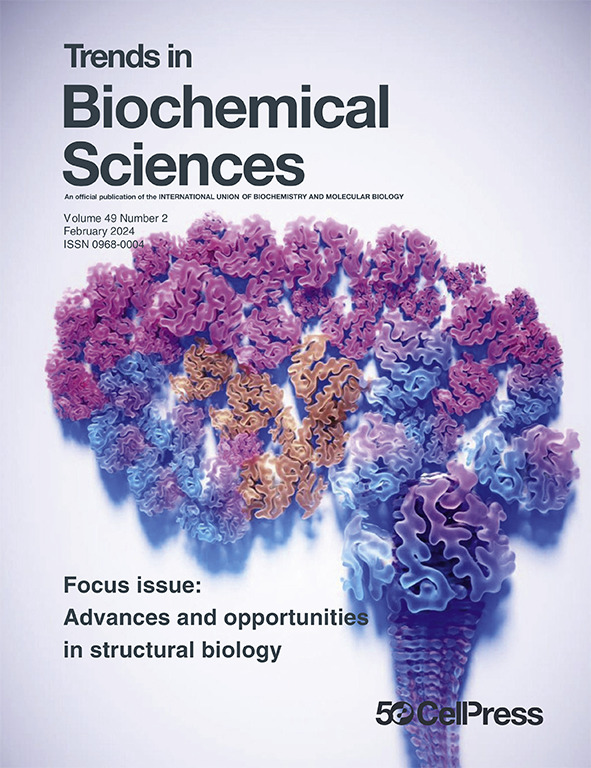The quest to identify ADP-ribosylation readers: methodological advances
IF 11.6
1区 生物学
Q1 BIOCHEMISTRY & MOLECULAR BIOLOGY
引用次数: 0
Abstract
ADP-ribosylation regulates numerous fundamental cellular processes in health and disease. However, the limited availability of suitable tools and methods prevents the identification and characterization of certain components of the ADP-ribosylation signaling network and, consequently, efficient utilization of their biomedical potential. Identification of ADP-ribose (ADPr) readers has been particularly impeded by challenges associated with the development of ADPr-based enrichment probes. These difficulties were finally overcome in several recent studies describing various approaches to identifying ADPr readers in an unbiased, proteome-wide manner. In this review we discuss these different strategies and their limitations, benefits and drawbacks, and summarize how these technologies contribute to a dissection of ADP-ribosylation signaling networks. We also address unmet technological needs and future directions to investigate interactions with ADPr linkages.
鉴别 ADP 核糖基化阅读器的探索:方法学上的进步。
ADP-ribosylation 调节着健康和疾病中的许多基本细胞过程。然而,由于可用的合适工具和方法有限,ADP-核糖基化信号网络中某些成分的鉴定和表征工作受到阻碍,从而无法有效利用其生物医学潜力。ADP-核糖(ADPr)阅读器的鉴定尤其受到与开发基于 ADPr 的富集探针相关的挑战的阻碍。最近的几项研究最终克服了这些困难,这些研究描述了以无偏见、全蛋白质组的方式鉴定 ADPr 阅读器的各种方法。在这篇综述中,我们讨论了这些不同的策略及其局限性、优点和缺点,并总结了这些技术如何有助于剖析 ADP-ribosylation 信号网络。我们还讨论了尚未满足的技术需求以及研究 ADPr 连接相互作用的未来方向。
本文章由计算机程序翻译,如有差异,请以英文原文为准。
求助全文
约1分钟内获得全文
求助全文
来源期刊

Trends in Biochemical Sciences
生物-生化与分子生物学
CiteScore
22.90
自引率
0.70%
发文量
148
审稿时长
6-12 weeks
期刊介绍:
For over 40 years, Trends in Biochemical Sciences (TIBS) has been a leading publication keeping readers informed about recent advances in all areas of biochemistry and molecular biology. Through monthly, peer-reviewed issues, TIBS covers a wide range of topics, from traditional subjects like protein structure and function to emerging areas in signaling and metabolism. Articles are curated by the Editor and authored by top researchers in their fields, with a focus on moving beyond simple literature summaries to providing novel insights and perspectives. Each issue primarily features concise and timely Reviews and Opinions, supplemented by shorter articles including Spotlights, Forums, and Technology of the Month, as well as impactful pieces like Science & Society and Scientific Life articles.
 求助内容:
求助内容: 应助结果提醒方式:
应助结果提醒方式:


